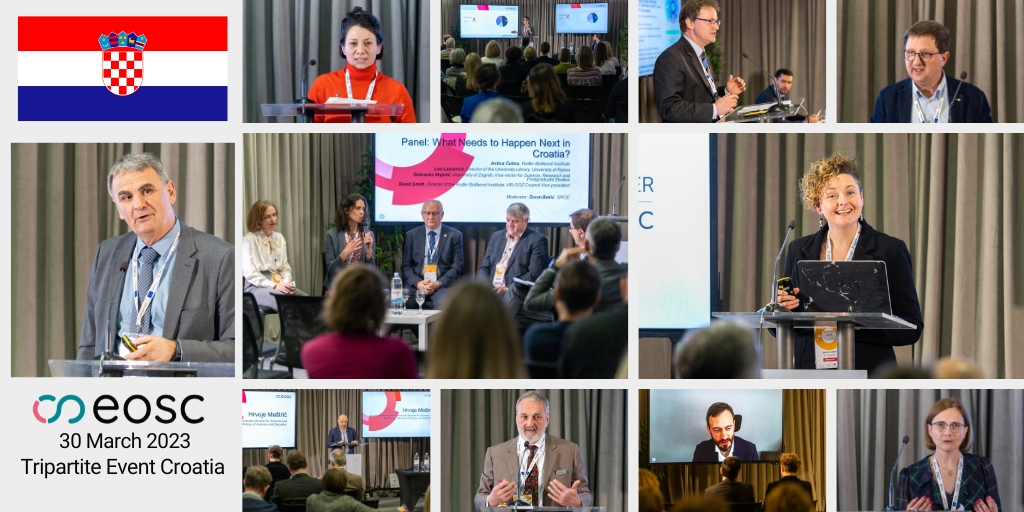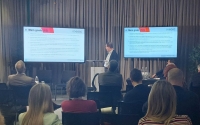The first part of the tripartite meeting focused on policies and activities of organizations related to EOSC. Speakers included experts from Croatia and the European Commission, as well as representatives of organizations involved in EOSC governance - Ivan Marić (SRCE, EOSC), Anna Panagopoulou (European Commission), Michel Schouppe (European Commission, EOSC), Giorgio Rossi (Università degli Studi di Milano, EOSC), and Sarah Jones (EOSC). They discussed crucial topics for open science development, addressing the state of the movement in Croatia from the perspectives of researchers, policymakers, and funders.
In the second part of the event, the discussion turned to research data, their management, and their role in open science. For the first time, the draft of the Croatian Open Science Plan prepared within the framework of the Croatian Open Science Cloud Initiative was publicly presented. Antica Čulina, Senior Research Associate at the Ruđer Bošković Institute, spoke about researchers' perspective in open science. Sanja Jurković and Lovorka Čaja presented the concept of research data management at the Ruđer Bošković Institute, and Marijana Glavica discussed the current plans and challenges faced by the Croatian Social Network Data Archive (CROSSDA). Draženko Celjak from SRCE presented the service provider perspective in the field of open science and open research data, while Bojan Macan discussed open science from the perspective of the OpenAIRE NOAD (National Open Access Desk).

In the last part of the tripartite event, the focus was on discussing Croatia's position within EOSC and the support provided by the Croatian Science Foundation to the open science movement. The presentation of the draft Croatian Open Science Plan, prepared within the Croatian Open Science Cloud Initiative (HR-OOZ), took place. This was followed by a panel discussion on the topic "Who, What, and How Further with Open Science in Croatia?" in which renowned experts from the fields of science and academia participated. Among the panelists were Dr. Antica Čulina, a scientist who deals with ecology and the study of open science and research processes at the Ruđer Bošković Institute, Lea Lazzarich, the director of the University Library in Rijeka, who coordinates open science activities at the University, Prof. Dubravko Majetić, the Vice-Rector for Science at the University of Zagreb, and Dr. David Smith, the director of the Ruđer Bošković Institute. The discussion participants agreed that open science brings many benefits and a new quality to science and research. The need to establish a quality system and various forms of support for researchers in the application of open science principles, as well as the adaptation of institutional and project evaluation systems and scientist rewards and advancements, was emphasized. Additionally, support for the continuation of the Croatian Open Science Cloud Initiative as a platform for promoting and coordinating open science activities in Croatia and linking with the European Open Science Cloud was endorsed.
To support coordination, share best practices, and define concrete actions for EOSC implementation, it is necessary to encourage and hold such events more frequently. In addition to serving as a platform for knowledge exchange and addressing challenges faced by all stakeholders, tripartite meetings play a crucial role in strengthening dialogue. As such, they are essential for enhancing collaboration and success in building a common European research cloud.

